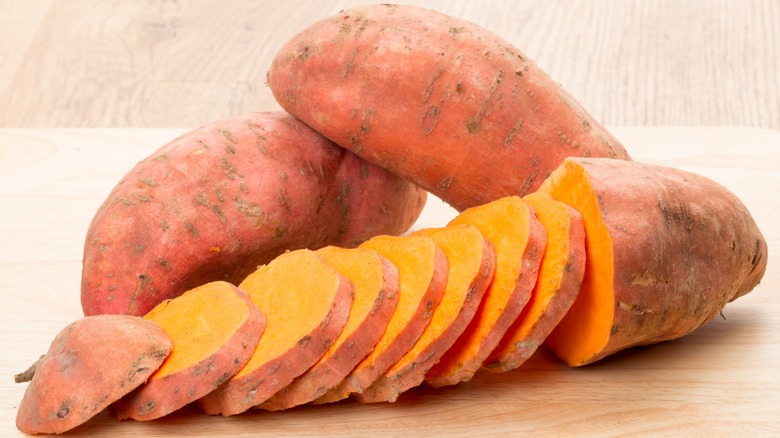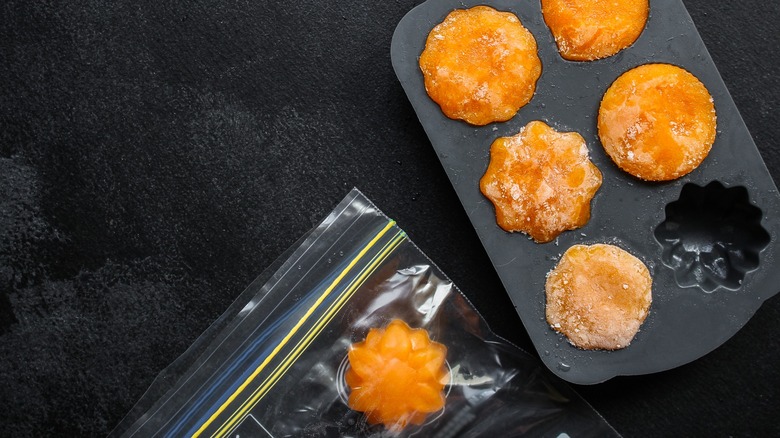When Freezing Sweet Potatoes, Preserve Their Bright Color With Fresh Lemon
Sweet potatoes, like many winter and root vegetables primed to withstand harsh growing conditions, have a long shelf life. If you buy them fresh, they can last at least a month. These tasty orange root veggies don't even require refrigeration, needing only a dark shelf or drawer in the pantry to await their turn on your dinner menu. However, freezing your sweet potatoes will extend their shelf life tenfold. And the key to maintaining their vibrant orange coloring after months in the freezer lies in the simple squeeze of fresh lemon.
Before you freeze your sweet potatoes, you'll need to first peel and cook them to preserve their sweet flavor in the freezer. When you peel them, you expose their flesh, which, in turn, initiates a chemical reaction known as enzymatic browning that causes them to turn brown and lose their flavor and nutrients. The ascorbic acid in lemon juice inhibits the effectiveness of the enzymes involved in the enzymatic browning reaction. Therefore, squeezing fresh lemon juice right before placing cooled and cooked slices or mashed potatoes into the freezer will conserve their beautiful orange hue.
While lemons are a quick, easy, and accessible product to pick up at the grocery store along with sweet potatoes, you can also blend pure ascorbic acid with water to treat your frozen sweet potatoes with even more efficacy. Ascorbic acid is more commonly known as vitamin C, and just about any pharmacy or health store sells it in both powder and tablet form.
Tips for freezing and cooking frozen sweet potatoes
Cooking and adding lemon juice are two integral parts of deactivating the enzymes that cause sweet potatoes to brown and lose their nutrients and flavor. However, there are some additional tips for freezing sweet potatoes that will make them easier to use after months in the freezer. For example, if you are freezing cubes or rounds of sweet potatoes, you should place the pieces on a parchment paper-lined baking sheet to freeze completely until solid before placing the frozen chunks into a bag for long-term storage.
By freezing them separately before putting them in a freezer-safe bag or container, you'll ensure that they won't stick together, making it easier to maintain the integrity of their form when you thaw and cook them. Once you're ready to use your frozen sweet potato pieces, you don't have to wait for them to thaw before reheating them. In fact, throwing them in the oven or frying pan while they're still frozen will result in pillowy, moist pulp and crispy edges.
You can also freeze whole roasted sweet potatoes and mashed sweet potatoes. For whole roasted sweet potatoes, you'll need to wrap them in tin foil before putting them in a freezer-safe bag to ensure that they're moist and fluffy when you reheat them. Mashed sweet potatoes, meanwhile, can go directly into a freezer-safe bag once they've cooled and received a squeeze of lemon juice.

